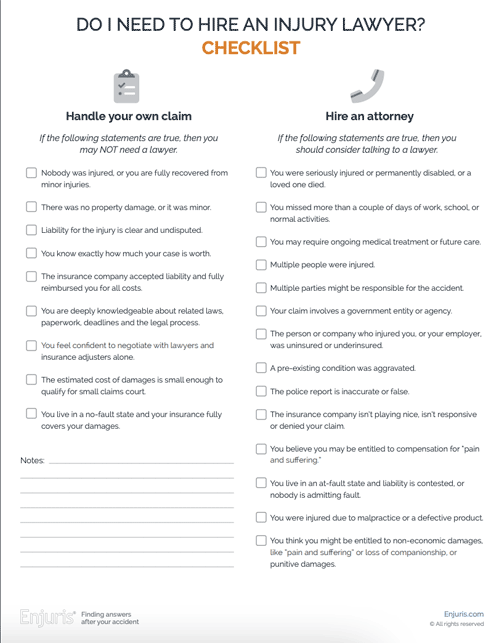
Pranks, by nature, are on someone who doesn’t expect what’s about to happen.
Most pranks are truly harmless. But some have unintended consequences... if you were injured because of a prank that went wrong, do you have legal recourse? If so, against whom?
Pranks can be funny.
They can be mean-spirited, but also in good fun. Nearly everyone has been a victim of a prank at one time or another, and most of us have played a prank on someone else. Yes, April Fool’s Day pranks are what come to mind, but for some people, playing pranks is a way of life and they’re game for a little entertainment any day of the year.
There are the harmless pranks, of course—a whoopee cushion on the chair, the Jell-O powder in the showerhead, or Post-it bombing—which are good for a laugh and wouldn’t be likely to cause any injuries.
But then there are pranks that can leave someone injured. If that happens, is the prankster liable? The line between comedy and harm can be a thin one, and crossing it might result in serious legal consequences. Let's dive into the maze of liability surrounding prank-related injuries.
Who could be liable for a prank gone wrong?
When a prank leads to an injury, identifying who's liable can become complicated. There are three parties who could be liable if you’re injured as the butt of a prank.
- The prankster, or the individual who coordinated and pulled off the prank.
- Spectators, or those who were aware of the prank and encouraged it.
- The platform, which is a social media network where the prank was uploaded for viral clicks and shares.
How is the prankster liable?
In personal injury law, a prankster could be liable for injuries caused if they acted negligently or intentionally to harm the victim. But what does this mean, exactly?
- Intentional infliction of harm. If the prankster intended for the victim to be harmed, liability is almost certain.
- Negligence. Even without intent to harm, the prankster could be liable if a "reasonable person" could foresee that the prank would cause the victim or a bystander to be injured. For example, someone might think it’s funny to throw a water balloon at their neighbor’s car as they drive down the street (note: this is dangerous and not funny). It’s never safe to pull a prank that involves a moving vehicle or someone who is driving. The balloon hits the windshield of the car and splashes water everywhere. Water, itself, won’t hurt the car, but the driver is so startled that they jerk the steering wheel, causing the car to hit a child on a bike on the road. Both the driver and the child are injured. In this type of situation, it would be clear that the person who intentionally threw the water balloon is liable, even though they did not intend for anyone to be hurt. It’s reasonable to assume that throwing a water balloon at a moving car would cause the driver to have an accident.
Does a prankster have any legal defenses?
Maybe. If the victim was aware of the prank and consented to participate, the prankster might not be liable or the victim might share liability.
Another defense is if the prank resulted in an unusual or unforeseeable “freak” accident that was not anticipated.
Consider this situation: The prankster places a whoopee cushion on their friend’s chair before the friend arrives to join them at a restaurant. The friend arrives with a lit cigarette in their hand, even though smoking is prohibited. The friend sits on the whoopee cushion and is laughing so hard that they drop their cigarette, and it causes a fire. People are injured because of the fire.
It could be argued that the prankster caused the fire because the whoopee cushion’s effect was the friend’s laughter and surprise that made them drop their cigarette. However, cigarettes were not allowed in the restaurant. The prankster could not have foreseen that the friend would drop a cigarette that would cause a fire. More likely is that the friend would be liable because they carried a lit cigarette into an establishment that does not permit smoking.
When do spectators share liability?
Does that person laughing in the background share any liability with the person who performed the prank? They might, if they encouraged it, played a role in planning it, or had reason to believe that a victim could be injured.
What if it’s a social media-related prank?
A social media platform could be liable for some injuries on a limited basis. This would depend, in part, whether the platform promoted or failed to remove potentially dangerous content.
Types of injuries and financial compensation
Prank-related injuries can vary in severity:
- Minor physical injuries like scrapes or bruises
- Serious physical harm like fractures or concussions
- Emotional or psychological trauma
- Damage to personal property
If you decide to file a lawsuit, the compensation could cover:
- Medical expenses
- Lost income
- Emotional distress
- Property damage
Taking legal action: How to file a lawsuit
- Consult a medical professional. Obtain all necessary treatments and document your injuries.
- Gather evidence. Collect video footage of the prank, witness statements, and any online comments or texts related to planning or encouraging the prank.
- Consult a personal injury lawyer. Given the complexities and questions about liability, legal advice is crucial.
Why and when you'd want a personal injury lawyer
Navigating a lawsuit for a prank-related injury is no laughing matter. You should consider hiring a personal injury lawyer immediately after the injury.
Pranks may be meant for laughs, but when someone gets hurt, the legal landscape is anything but funny. Understanding the nuances of liability and taking timely action can make all the difference. If you or someone you know has been injured due to a prank, consult a personal injury lawyer to explore your options. After all, it's better to be safe than sorry, especially when your well-being is on the line.

Sample accident journal/diary to help you document the effect on your daily life
Download in PDF format

Can you handle your own claim, or should you hire an attorney? Use this worksheet to determine when you should consider hiring a personal injury or workers' comp lawyer.
Download in PDF format
